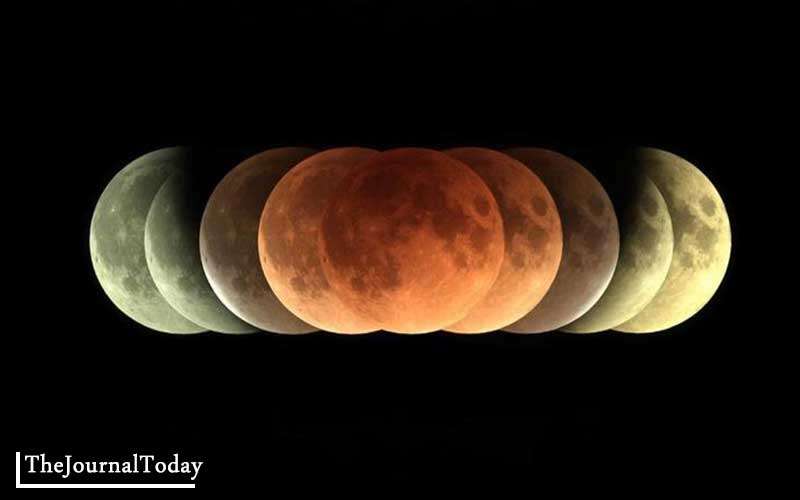The second of the four penumbral lunar eclipse 2020 of this year is expected to occur on the intervening night of 5 and 6 June.
The Lunar Eclipse will be visible in much of Europe, Asia, Australia, Africa, South/East South America, Pacific, Atlantic, Indian Ocean, and Antarctica. As per the reports, since it is a penumbral eclipse, the moon will only be a bit fainter.
Lunar Eclipse 2020
The moon is above the horizon during a penumbral lunar eclipse and if the weather conditions are good, people in New Delhi will be able to witness the event. A lunar eclipse takes place when the Earth comes between the sun and the moon. The Earth’s shadow blocking the sun’s light from reaching the moon, and that’s the lunar eclipse.
A penumbral lunar eclipse happens when the Sun, Earth, and the Moon are imperfectly aligned. The Earth blocks some of the Sun’s light from directly reaching the Moon with the outer part of its shadow, which is known as the penumbra. That is why this eclipse is called a penumbral lunar eclipse. Since the penumbra is much fainter than the dark core of the Earth’s shadow, a penumbral eclipse is hard to distinguish from the normal Full Moon.
The penumbral lunar eclipse will happen between June 5 and 6, 2020. The moon will enter the faint part of Earth’s shadow starting at 11:15 pm today as per the Indian Standard Timing (IST). The penumbral eclipse will be at its peak at 12:54 am and end at 2:34 am on June 6, 2020.
The National Space Centre, UK, tweeted
“Tonight we’re set for a penumbral lunar eclipse. This occurs when the Moon travels only through the outer, fainter part of the Earth’s shadow, or ‘penumbra’. You’ll be able to notice a slight darkening of the Moon’s surface. #AstronomyWeek Credit: Prakash Mathema”
A user on Twitter, Kate Lynch tweeted,
“Tonight’s Sagittarius Full Moon eclipse will open the doorway to a portal of transformative energy. We are rising into a new power, claiming our voice, and the Universe is giving us time and a slower pace to navigate through this. It’s time to shed and remove those layers…”
Apart from this, the year has two more lunar eclipses scheduled ahead. The third eclipse of 2020 will occur in July and the fourth eclipse will occur in November 2020, both these eclipses will be penumbral ones.
